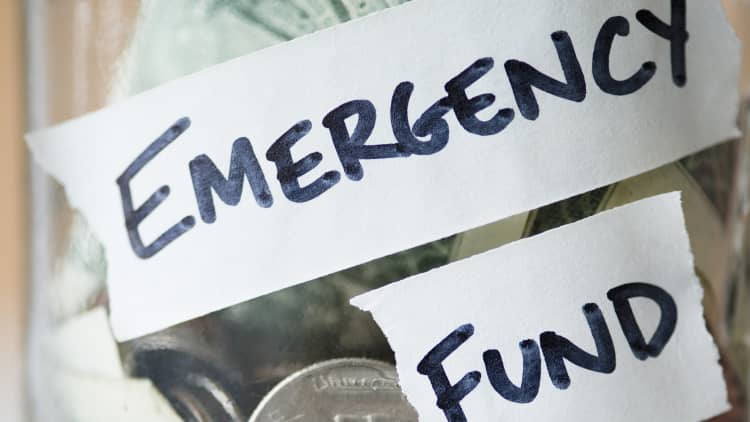
Better start building that emergency fund.
Earlier this year, a Bankrate.com report found that just 41 percent of Americans could draw from savings to cover a $500 emergency. The problem? That's a pretty minor bill as far as emergencies go.
In a given year, 40 percent of families face an "extraordinary payment" of roughly $1,500 to cover an unexpected medical, auto repair or tax bill, according to a new analysis from JPMorgan Chase Institute. The bank assessed anonymized account data from 25,000 Chase checking account customers between January 2013 and December 2015.
Tax time is the worst season for unexpected expenses — and not just for tax bills. JPMorgan Chase Institute data found that March and April are the most common months for extraordinary medical expenses.
"Even with more money in their pocket from tax refunds, the strain of major and unexpected medical costs are hitting families hard and making it difficult for them to recover," Diana Farrell, president and chief executive officer of the JPMorgan Chase Institute, said in the press release.
A year after an emergency medical payment, 48 percent of families still had depleted savings and 33 percent still had elevated credit card debt, the report found.
Financial advisors typically recommend setting aside three to six months' worth of living expenses, although some families may benefit from having even more saved.
That can be a daunting target, but even having a little bit set aside can mean you rely less on credit to cover an emergency, said Bruce McClary, a spokesman for the National Foundation for Credit Counseling.
"One of the things that people need to consider in this situation is that you have to start somewhere," he said.
Assess your budget and look for room to save even small amounts, McClary said. Set up recurring contributions from your paycheck into a savings account to help reinforce the habit. And if you do get a windfall, such as a bonus or a tax refund, save at least some of that money to help create a safety net.



